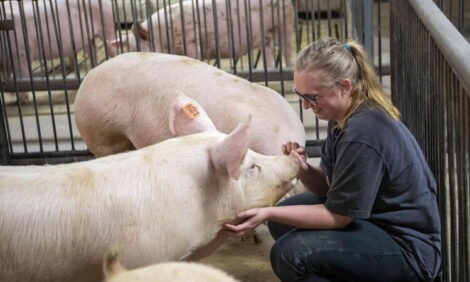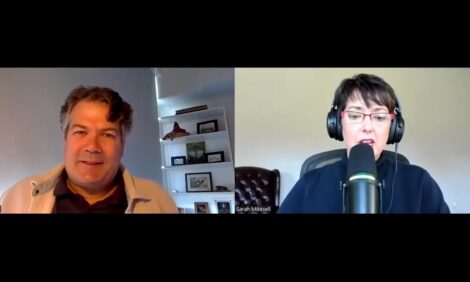



Listening to Consumers to Maintain Agriculture’s Social Licence
Today it seems everyone has an opinion about how food should be grown, writes Angela Lovell.Few companies are more aware of this than Monsanto, which hasn’t always been as engaged as it should have been in helping to shape public perception about its products, and agriculture in general.
“In the past conversations about agriculture were happening without us,” said Trish Jordan, Monsanto Canada’s head of Public and Industry Affairs, during a presentation at the Canadian Beef Industry Conference in Calgary on August 10th.
“When you aren’t engaged in the conversation, others step in and have that conversation for you. Over the last few years we have tried to remedy that situation. We’ve engaged in many conversations, generated a lot of online content, and shared the positive stories of not only what we feel we are contributing to the industry, but what you are doing as farmers.”
Why is everyone talking about agriculture?
Probably because agriculture sits at the middle of some of the most important issues that today’s society faces.
“Population and income growth are spurring the demand for food, water and energy,” said Ms Jordan. At the same time, there are limited amounts of more land, water and energy to produce food.
“There is growing evidence that agriculture is a big factor in overall ecosystem health, ensuring a stable climate, abundant biodiversity and clean water. We believe agriculture is part of the solution, not the problem, to help address some of these challenges.”
There are all kinds of people attacking farming for any number of reasons, added Ms Jordan. Some may simply not like big agriculture or corporate farms because they have a romantic, idealised vision of what farms looked like decades ago.
“Others truly and deeply believe that their food is harming them, and by association they jump to the conclusion that the products, and tools, and practices you are using on your farm are somehow having an impact on that. They view those tools as part of the problem,” said Ms Jordan.
Others simply want science and technology out of agriculture altogether, which is ironic, said Jordan, when consumers are willing to accept technology in every other aspect of their lives.
“They accept technology in cars, entertainment systems, cell phones, computers, and medicine and yet they are not prepared to let farmers use science and technology to grow food that lessens the environmental impact and helps provide more food for the planet.”
What you do on your farm matters to society
Deciding how and who to share positive stories with is another issue, but Monsanto decided to focus on three key groups – mothers, (because they do most of the food shopping and care about the health their families), millennials, (because they are the most engaged with social media), and foodies like chefs and food bloggers.
“We never talked to consumers before and we now recognise that was wrong for us,” said Ms Jordan. “We’ve learned we have to shift our thinking to consider how what we do in our industry, and what you do on your farm, matters to society, and how it impacts them or connects with their values.
"Consumers want to know that their food is safe, and that you care about the environment, and are willing to use less – less water, fuel, soil, inputs. They certainly want to know that you care for your animals and your land.”
Most beef producers would say these are a given – things that they do every day, but, says Ms Jordan, to maintain that social licence, all players across the whole value chain need to do whatever has to be done to earn consumer trust, and that involves not just talking, but listening.
“It’s not about arguing or trying to win a debate and it’s not about inundating people with scientific information,” she said. “It’s about listening to their concerns, trying to find some common ground, and engaging in a conversation.”
Farmers are credible
There are lots of options for producers to share what they do, and farmers are the best people to tell these stories about agriculture because they are the most credible in the eyes of consumers.
“What you do every day on the farm and what it means to you, your families and communities is a story worth sharing and will help us all earn our social licence and trust of consumers,” Ms Jordan told conference attendees.
“Step up and share your stories because we need to work collectively together and expand the voice to everyone who is involved in agriculture, from the primary producer through the value chain to help people understand how great working in this industry is, and how important it is to produce food for everyone.”







